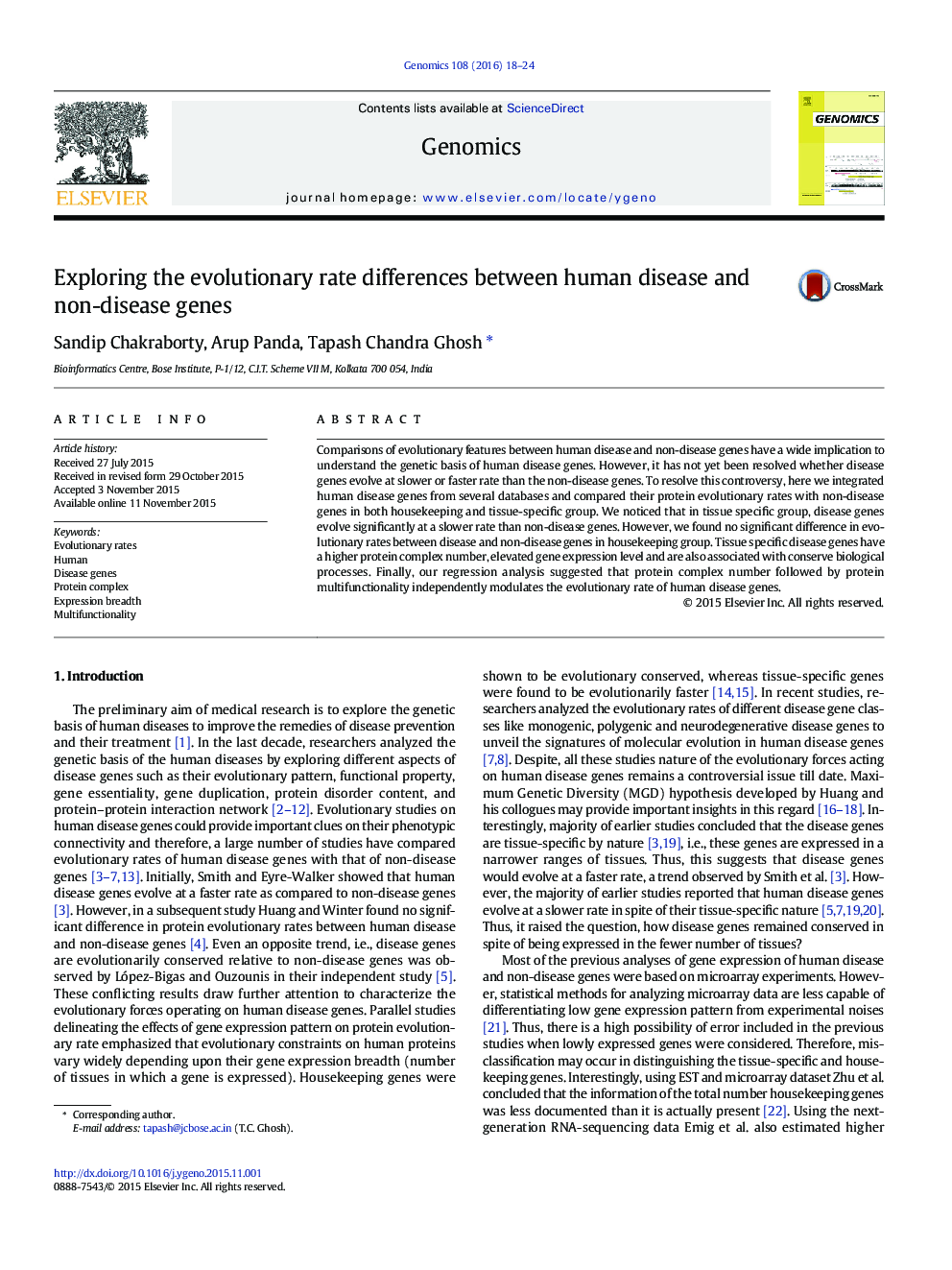| Article ID | Journal | Published Year | Pages | File Type |
|---|---|---|---|---|
| 2820540 | Genomics | 2016 | 7 Pages |
•Human disease genes evolve slower than non-disease genes in tissue specific group.•In housekeeping group both disease and non-disease genes evolve at similar rates.•Human disease genes participate in a large number of protein complexes.•Several factors modulate evolutionary rates of human disease and non-disease genes.•Protein complex number and gene expression are the most important factors.
Comparisons of evolutionary features between human disease and non-disease genes have a wide implication to understand the genetic basis of human disease genes. However, it has not yet been resolved whether disease genes evolve at slower or faster rate than the non-disease genes. To resolve this controversy, here we integrated human disease genes from several databases and compared their protein evolutionary rates with non-disease genes in both housekeeping and tissue-specific group. We noticed that in tissue specific group, disease genes evolve significantly at a slower rate than non-disease genes. However, we found no significant difference in evolutionary rates between disease and non-disease genes in housekeeping group. Tissue specific disease genes have a higher protein complex number, elevated gene expression level and are also associated with conserve biological processes. Finally, our regression analysis suggested that protein complex number followed by protein multifunctionality independently modulates the evolutionary rate of human disease genes.
